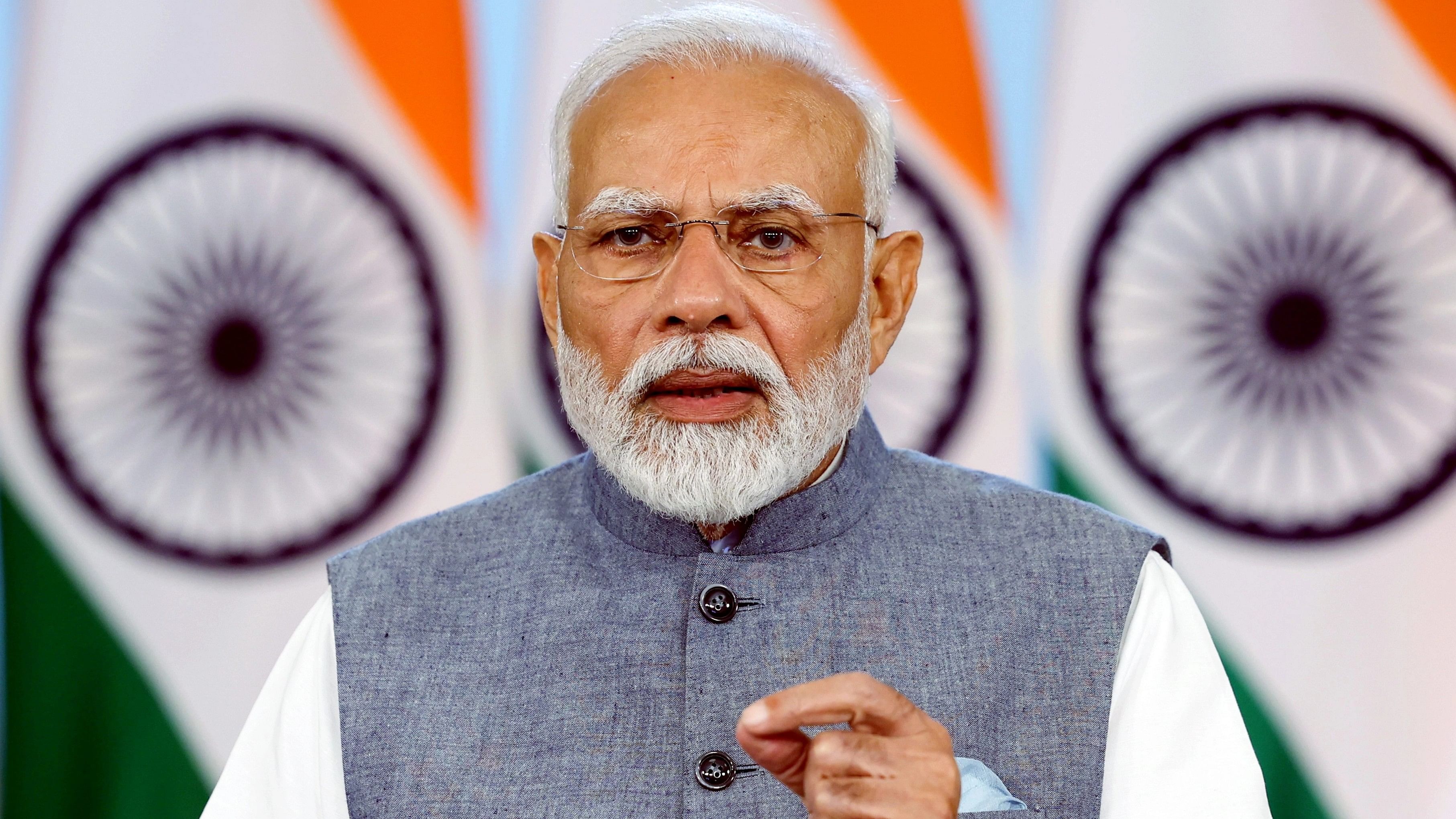
Prime Minister Narendra Modi digitally addresses the flagging off ceremony of ferry services between Nagapattinam (India) and Kankesanthurai (Sri Lanka).
Credit: PTI Photo
Chennai: After 41 years, Tamil Nadu on Saturday re-established its sea route connections with northern Sri Lanka with the launch of a passenger ferry service between Nagapattinam and Kangesanthurai ports, with Prime Minister Narendra Modi calling this as a “new chapter” in India-Sri Lanka diplomatic and economic relationship.
Union Shipping Minister Sarbananda Sonawal and Tamil Nadu Public Works Department Minister E V Velu launched the service to be operated by the Shipping Corporation of India (SCI) at the Nagapattinam port, 325 km from Chennai.
The ferry service will take around three hours to cover the distance of 60 nautical miles from Nagapattinam to Kangesanthurai, a strategic port near Jaffna, the capital of northern Sri Lanka. With a fare of around Rs 7,700 (including GST), passengers will get a 40 kg baggage allowance with the ticket, the SCI said.
India and Sri Lanka were connected via the sea route till 1982 when civil war broke out in the island nation. Boat Mail express connected Chennai with Colombo – train service from Chennai to Dhanuskodi from where a steam ferry took the passengers to Talaimannar in northern Sri Lanka and another train to Colombo.
The launch of the ferry service provides another direct mode of transportation between Tamil Nadu and northern Sri Lanka, which have enjoyed cultural, civilisational, and historical links. Currently, Air India operates a direct flight between Chennai and Jaffna, which helps tourists and passengers to avoid going to Colombo to reach the north.
In a video message, Modi said the ferry service “brings alive” historical and cultural connections between the two regions that have found rich mention in Sangam Literature such as Pattinappalai and Manimekalai and announced that the two countries will work towards resuming the ferry service between Rameswaram and Talaimannar.
“Connectivity is the central theme of this (India-Sri Lanka) partnership. Connectivity is not only about bringing two cities closer. It also brings our countries closer, our people closer and our hearts closer. Connectivity enhances trade, tourism and people-to-people ties. It also creates opportunities for the youth of both countries,” Modi said.
Contending that India-Sri Lanka connectivity goes beyond the transport sector, the Prime Minister said the two countries are working on the fin-tech sector by linking UPI and Lanka Pay as digital payments have become a “mass movement” and a “way of life” in India.
“Energy security is crucial for our countries to power our development journey. We are connecting our energy grids to enhance energy security and reliability,” Modi added.
He also said India remains committed to working closely with Sri Lanka to further strengthen bilateral ties for the mutual benefit of the people.
SCI will deploy high speed craft, Cheriyapani, for the service between the two countries.
Passenger ferry service between Rameswaram in Tamil Nadu and Talaimannar in northern Sri Lanka was suspended in 1982 after civil war broke out in the island nation. However, the then UPA-II government launched a ferry service between Thoothukudi and Colombo, which lasted only five months.